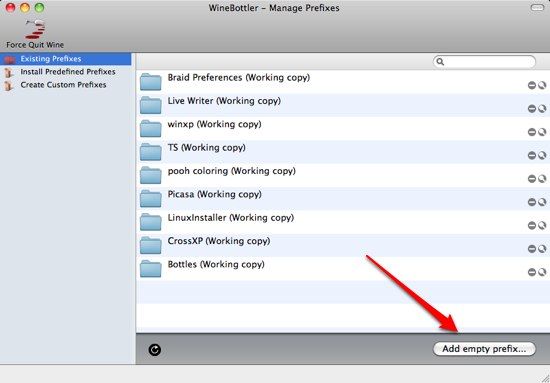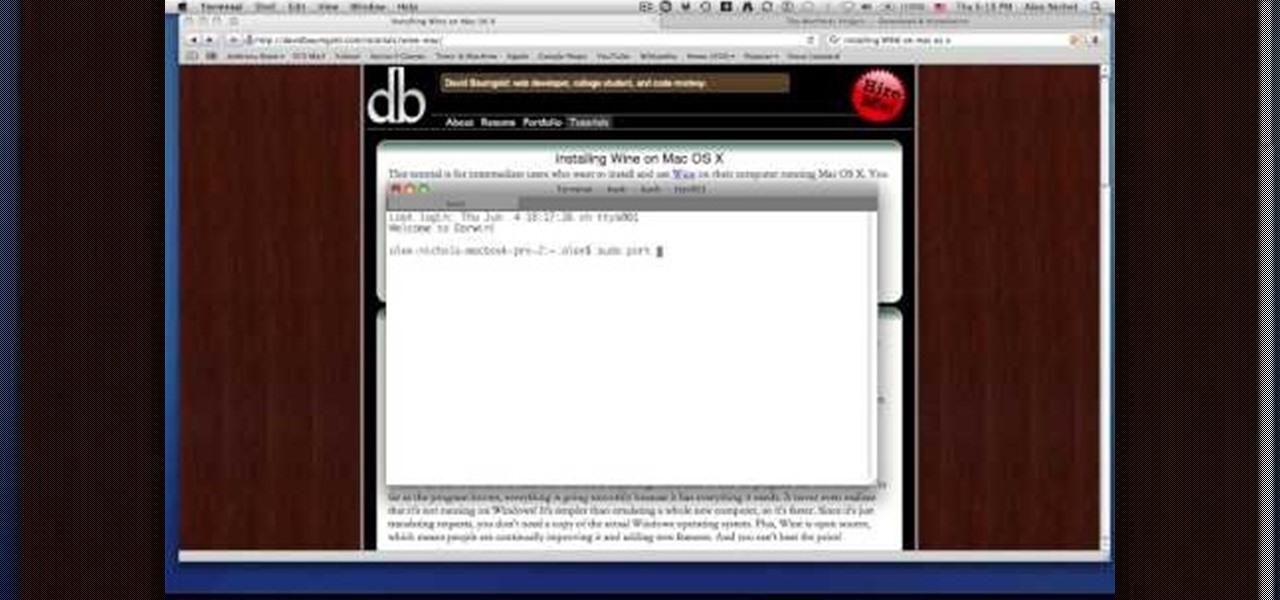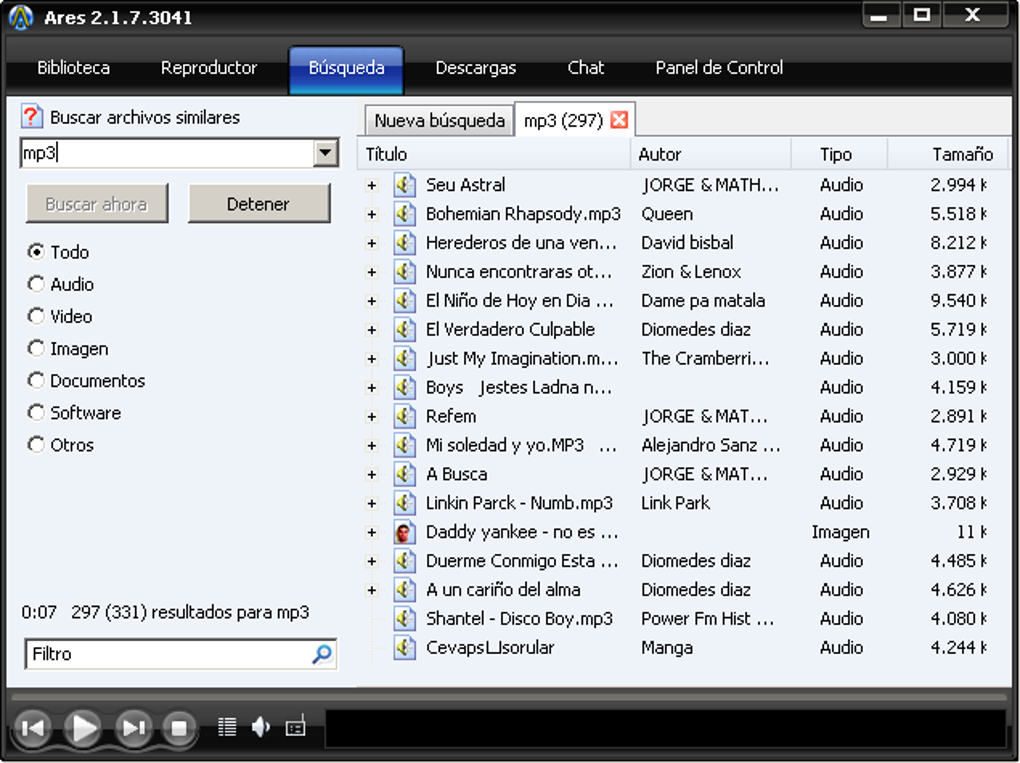Linux users who want to run Windows applications without switching operating systems have been able to do so for years with Wine, software that lets apps designed for Windows run on Unix-like systems.
There has been no robust equivalent allowing Mac applications to run on Linux, perhaps no surprise given that Windows is far and away the world's most widely used desktop operating system. A developer from Prague named Luboš Doležel is trying to change that with 'Darling,' an emulation layer for OS X.
Aug 06, 2011 A quick tutorial on how to install Wine on Mac OS X. This is one of the easier methods because the other one involves a lot of Terminal commands and waiting, where this one is more self.
'The aim is to achieve binary compatible support for Darwin/OS X applications on Linux, plus provide useful tools that will aid especially in application installation,' Doležel's project page states. Darwin is Apple's open source operating system, which provides some of the backend technology in OS X and iOS. The name 'Darling' combines Darwin and Linux. Darling works by 'pars[ing] executable files for the Darwin kernel... load[ing] them into the memory... and execut[ing] them.'
But there is a ways to go. 'Darling needs to provide an ABI-compatible [application binary interface] set of libraries and frameworks as available on OS X... by either directly mapping functions to those available on Linux, wrapping native functions to bridge the ABI incompatibility, or providing a re-implementation on top of other native APIs,' the project page notes.
Doležel, who started Darling a year ago, described the project and its progress in an e-mail interview with Ars. Darling is in the early stages, able to run numerous console applications but not much else. 'These are indeed the easiest ones to get working, albeit 'easy' is not the right word to describe the amount of work required to achieve that,' Doležel said. 'Such applications include: Midnight Commander, Bash, VIM, or Apple's GCC [GNU Compiler Collection]. I know it doesn't sound all that great, but it proves that Darling provides a solid base for further work.'
Users must compile Darling from the source code and then 'use the 'dyld' command to run an OS X executable,' Doležel said. One roadblock is actually getting Mac .dmg and .pkg application files working on a Linux system. Because doing so isn't that straightforward, Doležel said, 'I've written a FUSE module that enables users to mount .dmg files under Linux directly and without root privileges. An installer for .pkg files is underway.'
Unix/Linux synergy
The fact that OS X is a Unix operating system provides advantages in the development process. 'This saved me a lot of work,' Doležel explained. 'Instead of implementing all the 'system' APIs, it was sufficient to create simple wrappers around the ones available on Linux. I had to check every function for ABI compatibility and then test whether my wrapper works, so it wasn't as easy as it may sound.'
Another lucky break not available to Wine developers is that Apple releases some of the low-level components of OS X as open source code, 'which helped a lot with the dynamic loader and Objective-C runtime support code,' Doležel noted.
But of course, the project is an extremely difficult one. Doležel isn't the first to try it, as Darling was initially based on a separate project called 'maloader.' Doležel said he heard from another group of people 'who started a similar project before but abandoned the idea due to lack of time.'
Doležel was actually a novice to OS X development when he started Darling, being more familiar with OS X from a user's perspective than a developer's perspective. 'I have personally looked for something like Darling before, before I realized I would have to start working on it myself,' he said.
Darling relies heavily on GNUstep, an open source implementation of Apple's Cocoa API. GNUstep provides several core frameworks to Darling, and 'the answer to 'can it run this GUI app?' heavily depends on GNUstep,' Doležel said. Doležel is the only developer of Darling, using up all his spare time on the project.
No reverse-engineering
Doležel isn't reverse-engineering Apple code, noting that it could be problematic in terms of licensing and also that 'disassembling Apple's frameworks wouldn't be helpful at all because Darling and the environment it's running in is layered differently than OS X.'
The development process is a painstaking one, done one application at a time. Doležel explains:
To improve Darling, I first take or write an application I'd like to have running. If it is someone else's application, I first examine it with one of the tools that come with Darling to see what frameworks and APIs it requires. I look up the APIs that are missing in Apple's documentation; then I create stub functions for them and possibly for the rest of the framework, too. (Stub functions only print a warning when they are called but don't do any real work.)
The next step is to implement all the APIs according to the documentation and then see how the application reacts. I also add trace statements into important functions to have an insight into what's happening. I believe this is very much like what Wine developers do.
When things go wrong, I have to use GDB [GNU Debugger] to debug the original application.
It is rather unfortunate that Apple's documentation is often so poorly written; sometimes I have to experiment to figure out what the function really does. Many OS X applications seem to contain complete pieces of example code from Apple's documentation, presumably because one would have to spend a lot of time getting to understand how the APIs interact. This is why I appreciate open source so much—when the documentation is sketchy, you can always look into the code.
Years of development are needed. Similar to Wine, 'Having a list of applications known to be working is probably the best way to go,' Doležel said.
Darling should work on all Linux distributions, he said, with the catch that 'many apps for OS X are 32-bit only, and installing 32-bit packages on a 64-bit Linux system could be tricky depending on your distribution. I personally use Gentoo Linux, so I'm gradually creating a Portage overlay that would compile Darling and all dependencies for both 32-bit and 64-bit applications.'
Doležel would like to bring Angry Birds, other games, and multimedia applications to Linux. Darling could potentially 'be used to run applications compiled for iOS,' he writes on the project site. This will also be a challenge. 'The intention is to support the ARM platform on the lowest levels (the dynamic loader and the Objective-C runtime),' he writes. 'Rewriting the frameworks used on iOS is a whole different story, though.'
Run Windows-based Programs on a Mac

» News: Cryptographic Update for WineBottler 4.0.1.1
Turn Windows-based programs into Mac apps –
NOT. ;)
WineBottler packages Windows-based programs like browsers, media-players, games or business applications snugly into Mac app-bundles. Your company provides you with a login, mail, calendar and contacts that only work on certain browsers?
Your company provides you with a login, mail, calendar and contacts that only work on certain browsers?You quickly want to test your websites in Windows-based browsers.
You want to play games, that are not ported to OS X?
Your online trading platform or accounting tool only runs on Windows?
Your audio book player is not available on
 OS X?
OS X?No need to install emulators, virtualizers or boot into other operating systems – WineBottler runs your Windows-based programs directly on your Mac.
This is possible thanks to a Windows-compatible subsystem, which is provided by the great OpenSource tool Wine.
WineBottler does Automated Installations:
Select from a wide range of software for which WineBottler offers automated installations. It is as easy as hitting 'Install' – and WineBottler will leave you with a neat app on your desktop. WineBottler does not come with the programs themselves, but with scripts, that take care of downloading, configuring and installing everything into an app for you.WineBottler can pack your .exe into an Mac .app ...
Double-click your .exe or .msi and convert it into an app with WineBottler. You can run the generated app like every other program on your Mac. For advanced users, WineBottler gives you a selection of options: install special dependencies and even turn your .exe into a self-contained app - that is an app, that contains everything to run it... even on other Macs. Porting to OS X never was easier ;).Mac Wine Where Are Programs Installed Near Me
Find out more - have a look at the Documentation.
Where Are Wine Programs Installed Mac
... or just run that .exe.
You don't care about generating an app and just want to run it? Double-click the .exe, choose 'Run directly' and Wine will run it in a generic environment.Enjoy, it's free!
Like Wine, WineBottler is free software. We've made it out of our own needs and now we share the result. If you are happy with it, you can keep the project rolling by sending a small Donation.Need other Versions of WineBottler or Wine.app?
We keep selected builds for you. Versions before 1.4.1 still run on OS X Tiger and Leopard.You find them under Downloads.
Support
If you have questions installing a certain program, please have a look at the documentation or at appdb.winehq.org first. winehq.org is the hub for all info about wine. It contains notes, hints and tricks to install all major programs.winehq.org is NOT affiliated with WineBottler in any way. So please do NOT post bug-reports or questions about WineBottler there - write an eMail to mikesmassivemess(at)kronenberg.org and if time permits, i'll try to get your exe running.
WineBottler is my hobby and it is free, so please understand, that I can't give you a one-to-one support. If you are looking for a Wine version with great dedicated support: Note down this Promo Code: 'CX64BIT' (for a 25% discount) – then head over to CrossOver.